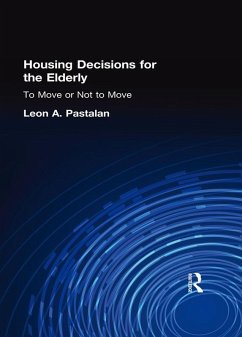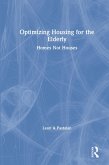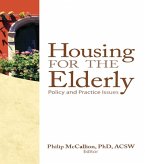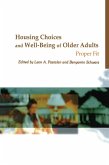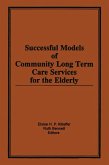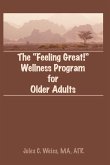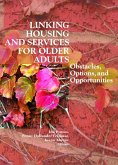The variety of living arrangements for the elderly are extensive and Housing Decisions for the Elderly makes professionals more aware of the diversity and complexity of motives and choices. Much of the existing research focuses only on mobility issues, but this book suggests a number of other factors which significantly affect decisions of elderly persons on whether or not to move. In a broad overview of many issues, Housing Decisions for the Elderly provides new research on concerns of the elderly and their families on where to live out their later years.
Dieser Download kann aus rechtlichen Gründen nur mit Rechnungsadresse in A, B, BG, CY, CZ, D, DK, EW, E, FIN, F, GR, HR, H, IRL, I, LT, L, LR, M, NL, PL, P, R, S, SLO, SK ausgeliefert werden.

